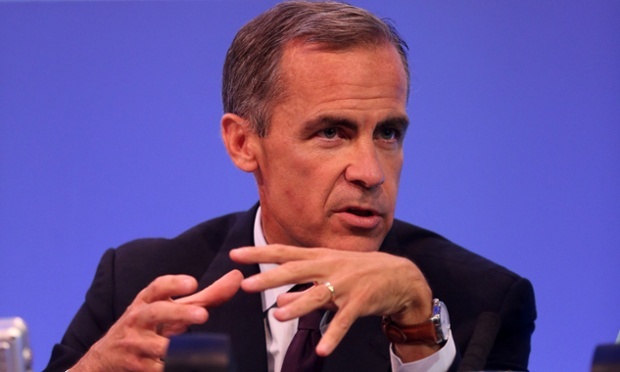December 1, 2014 – As reported yesterday in The Financial Times, the former Governor of the Bank of Canada, Mark Carney, and now in that same role for the Bank of England, has publicly acknowledged the need to consider the financial risks of investment in fossil fuel companies. This is not a move to divestment as of yet, but could be the first step in that direction.
The move follows remarks made by Carney at an October meeting of the World Bank when he stated that analysis points to a future when fossil fuel reserves will be declared unburnable. He went on to point out the risk this poses for financial institutions and their investments.
The World Bank, representing 73 national governments, 11 regional governments and more than 1,000 business and investment organizations, has called for a global price on carbon emissions.
Others are reassessing their investment position in fossil fuel companies. Among these are:
- The Global Invest-Divest Coalition, a group representing more than 160 institutions (many of them university endowments), city and county governments, and some 500 or more individual investors, have also pledged to divest themselves of $50 billion in fossil fuel investments within 3 to 5 years and allocate that money to new clean energy projects.
- The largest pension fund in the United States, the California Public Employees’ Retirement System, recently pledged to ensure that its $298 billion will assess the carbon risk within its portfolio.
- The Rockefeller Brothers Fund recently announced its intention to divest itself of coal and Canadian oil sands companies’ stock with the President of the fund stating “the science is crystal clear….we’ve just got to leave the bulk of the remaining fossil fuels in the ground.”
The Rockefeller announcement follows an earlier letter sent in October 2013 to 45 fossil fuel energy company chairman and CEOs by a group of 70 organizations asking for transparency on the issue of “stranded assets.” These 70 included Fortune 500 managers, CEOs of pension funds, mutual fund managers and government officials, holding $3 trillion in energy company stock and they were asking for clarification on “reserve exposure to the risks associated with current and probable future policies for reducing greenhouse gas emissions by 80% by 2050 to achieve the 2 degrees Celsius goal.”
In a letter dated October 30, 2014, Carney wrote to Joan Walley, Member of Parliament and Chair of the U.K.’s Environment Audit Committee, further clarifying his World Bank remarks by restating his position, “that the majority of proven coal, oil and gas reserves may be considered ‘unburnable’ if global temperature increases are to be limited to 2 degrees Celsius.” He further stated, “I also referenced, on the basis of this analysis, how this may lead to ‘stranded carbon.’….These remarks were made in the context of…..highlighting the costs and benefits of tomorrow to inform the investment and credit decisions of today.”
Carney further pointed out that issue of stranded assets impacts insurance exposure from climate change and “the role of insurance regulation in supporting adaptation to climate change.”
Carney’s comments indicate that he is more than convinced that business needs to be candid about environmental impacts on operations and that a lack of longer-term thinking will lead to a “tragedy of horizons” and market failure.

For many, like me, who rely on investment income from balanced portfolios that include a mix of Blue Chip dividend-paying stocks and bonds, energy companies are very much in play. Their perceived stock value includes both in-ground proven and estimated reserves. But it is those reserves that appear today to be on very shaky ground.
Unless the energy companies are society are prepared to invest in the rapid expansion of carbon capture and sequestration (CCS) capacity, then Carney’s warning of a “tragedy of horizons” is very real.
So far other than a few government-fund assisted CCS pilot projects, the exception being the Saskatchewan Boundary Dam project, the large energy companies seem to remain vested in old ways of thinking, the very issue Carney raised that could prove to be their undoing.

















